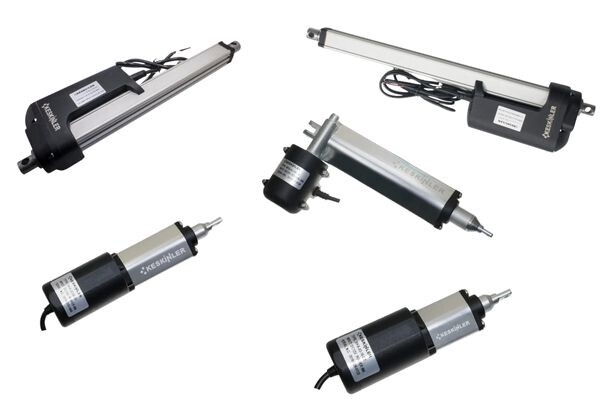Linear DC motors are electromechanical devices that convert electrical energy directly into linear motion. Unlike traditional rotary motors, they create a linear pushing or pulling force instead of rotating a rotor attached to a shaft.
The working principle of linear DC motors is based on Faraday's Law of Electromagnetic Induction. When a current-carrying conductor is in a magnetic field, a force is applied to the conductor. In linear DC motors, this force provides linear motion.
A linear DC motor usually consists of the following parts:
Stator (Magnetic Rail): Contains permanent magnets or electromagnets.
Rotor (Moving Part): Consists of conductive coils and moves linearly on the stator.
Linear DC motors have many advantages:
High Precision: Provides high precision and control since it provides direct linear motion.
More Fewer Mechanical Parts: Since rotating parts such as gears or shafts are not needed, wear is less.
High Speed: When designed correctly, they can reach very high speeds.
Easy Maintenance: Since they contain fewer moving parts, maintenance costs are lower.
Linear DC motors are widely used in various industrial and commercial applications:
Automation Systems: CNC machines, robotic arms, transportation systems.
Medical Devices: Ultrasonic devices that require precise motion, scanners.
Aviation and Space: High precision positioning systems.
Electric Vehicles: In rail systems and some electric vehicle motion systems.
The following criteria should be considered when selecting a linear DC motor:
Load Capacity: Maximum load that the motor can carry.
Speed and Acceleration: Compliance with the required speed and acceleration values.
Precision: Position required by your application precision.
Efficiency: The efficiency of the motor to optimize energy consumption.
Linear DC motors offer ideal solutions in many applications where linear motion needs to be controlled with precision. Thanks to their wide range of areas of use and advantages, they are preferred in a wide range from industrial automation to medical devices. If you also need linear motion control in your projects, we recommend that you consider linear DC motors.
1. What is the biggest advantage of linear DC motors?
High precision and the ability to provide linear motion are among their biggest advantages.
2. In what applications are linear DC motors used?
They are used in many areas such as automation systems, medical devices, aviation and space industry.
3. Are linear DC motors difficult to maintain?
No, they are quite easy to maintain since they contain few moving parts.
